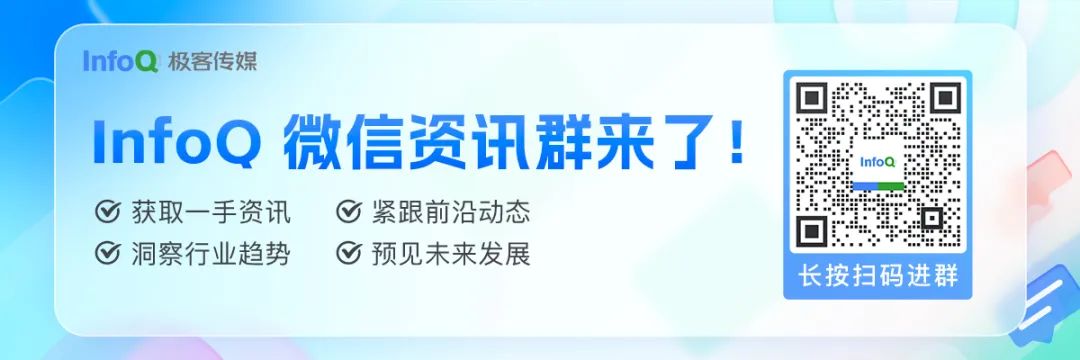

With the continuous evolution and deepening of technological architecture, the complexity of microservice systems is increasingly severe, necessitating strong governance strategies and tools. The microservice governance platform serves as a critical infrastructure, strategically significant and practically valuable for optimizing the lifecycle management of business microservices and enhancing their efficiency and effectiveness within development, operations, and governance systems.
However, there are certain high barriers associated with microservice governance tools. Firstly, in traditional GUI information management systems, the accessibility of key functions is relatively low, as these functions are often deeply nested within multi-layered menu structures, making them difficult to quickly locate and access, thereby increasing the cognitive burden and operational difficulty for users. Secondly, the efficient implementation of microservice governance largely depends on profound professional insights and practical experience. These valuable knowledge assets are often highly concentrated in the minds of a few experts, rather than systematically captured and executed by automated tools or platforms. In other words, there is currently no widespread automated solution that can seamlessly integrate and drive this series of complex microservice management processes. Meanwhile, the frequent changes in users and the varying levels of professional knowledge among relevant personnel become significant constraints on the platform’s development and the improvement of business efficiency.
As a result, Baidu has developed a new solution, and at the QCon Global Software Development Conference and Intelligent Software Development Ecosystem Exhibition, held from April 11-13, Baidu senior R&D engineer Liu Ruishen will share a speech titled “AI Agent Restructuring the Microservice Governance Platform.”
He joined Baidu in 2017 and has worked in Baidu Cloud, Infrastructure, and Large Commercial sectors, possessing extensive experience in microservice governance. He is currently a senior engineer at Baidu’s commercial advertising platform, leading the development of the Starlight microservice framework for commercial advertising (open-sourced, compatible with the Brpc protocol Java framework), and responsible for the evolution of the internal microservice governance platform from traditional to cloud-native and then to intelligent.
In this speech, he will start from the issues of traditional microservice governance platforms, leveraging the capabilities of LLM and AI Agents to explain how to combine microservice governance platforms with LLM + AI Agents to further enhance the value of microservice governance platforms.
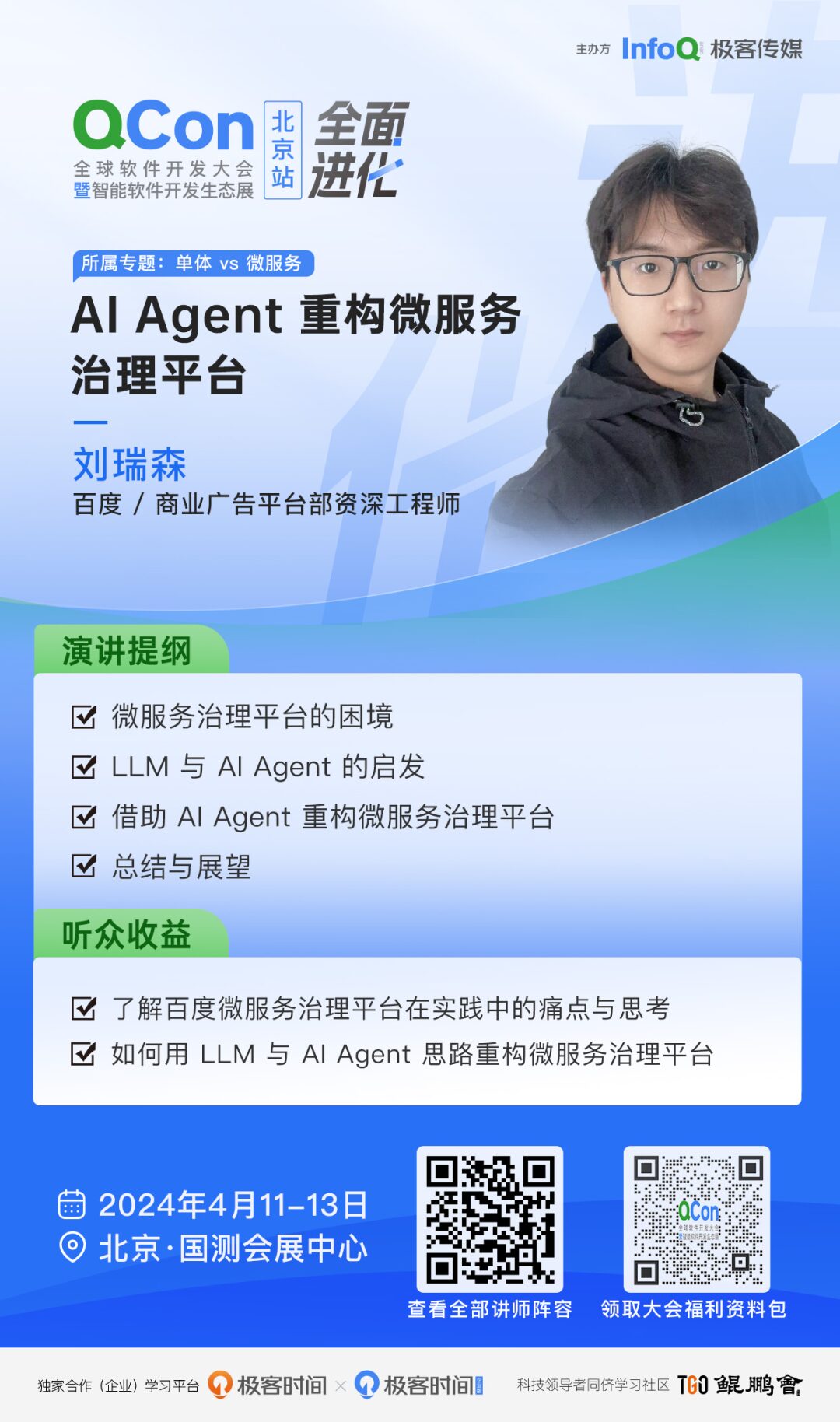
However, Liu also admits that this solution still has some pain points, such as:
-
The complexity of microservice issues leads to a plethora of platform capabilities and varying dependencies on technology, making it difficult for ordinary users to fully grasp microservice governance capabilities and make accurate decisions.
-
Resolving difficult issues strongly relies on expert case-by-case analysis, which cannot be distilled into general capabilities.
-
During the implementation of LLM, instability, low efficiency, and lack of professional knowledge are significant challenges.
If you are interested in this solution and the ideas for addressing these pain points, feel free to join Liu at the QCon Beijing venue for discussions.
The conference will also cover more ideas for addressing the complexity of microservices, such as:
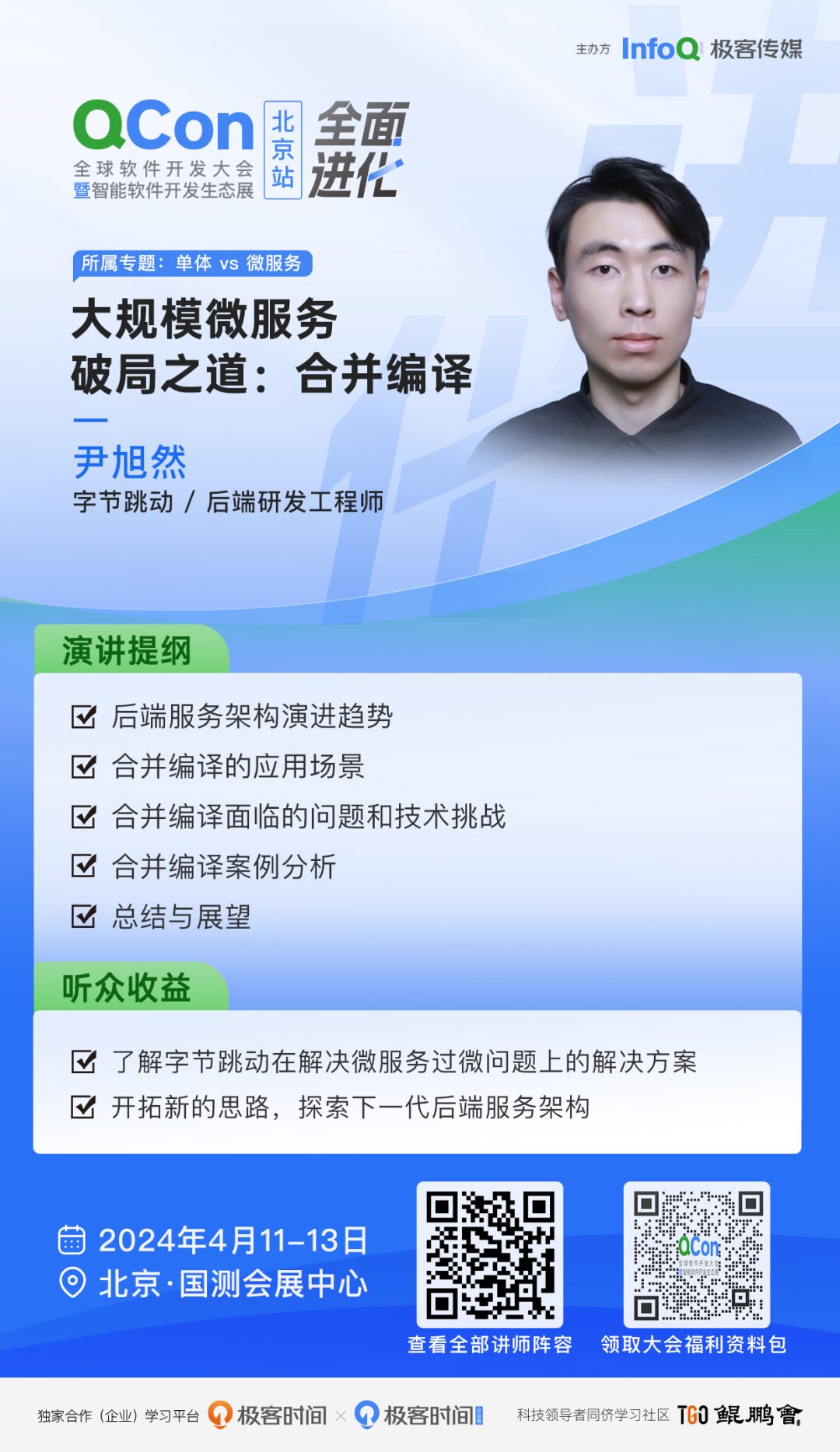
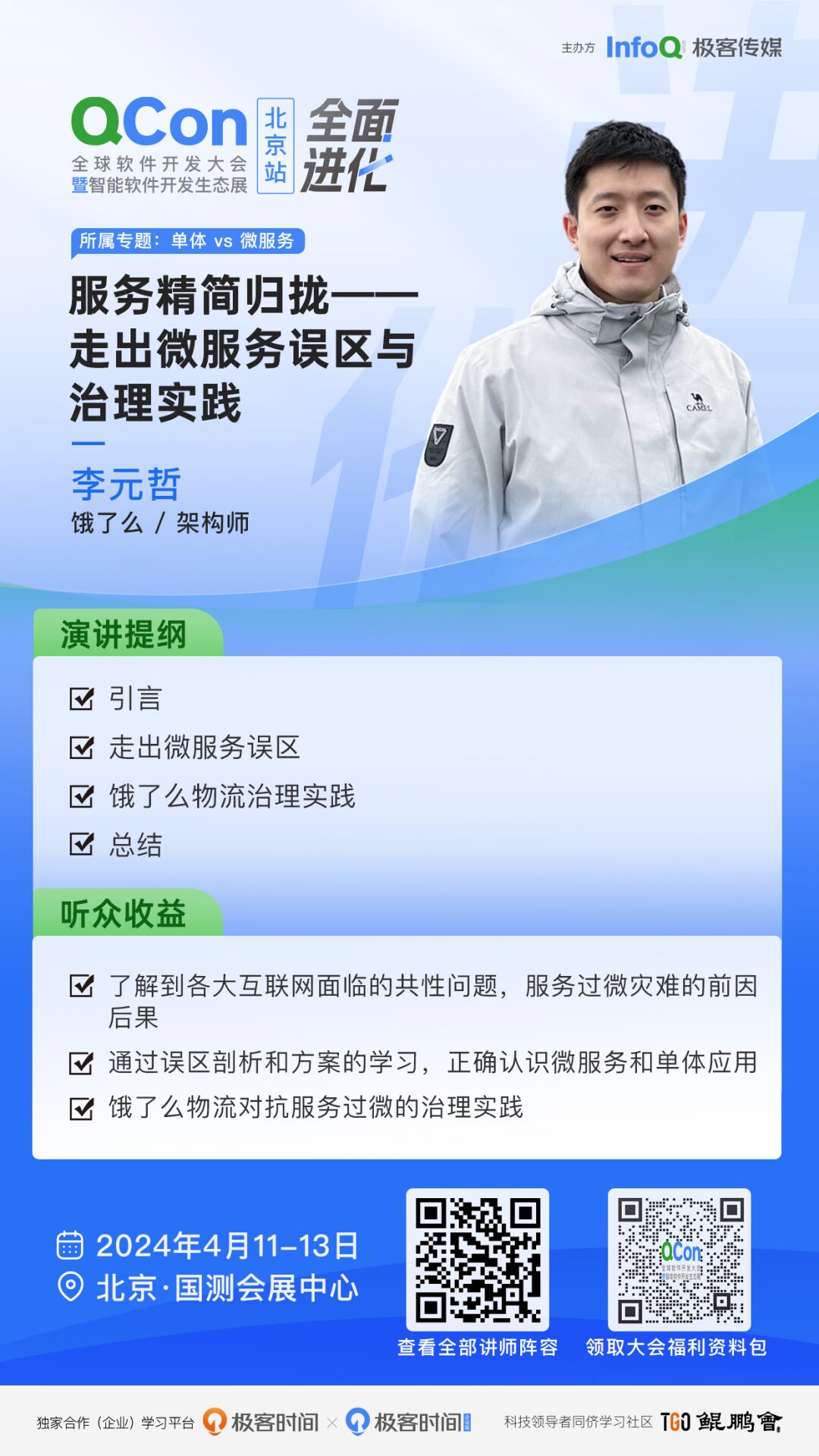
To provide a richer and more diverse communication platform, the QCon Global Software Development Conference will no longer be limited to traditional sharing and discussion modes, but will be fully integrated into a comprehensive exhibition event that includes technical sharing, in-depth discussions, and cutting-edge exhibitions, and has officially been renamed to 【QCon Global Software Development Conference and Intelligent Software Development Ecosystem Exhibition】.
At the same time, the conference has officially been rescheduled to: April 11-13, 2024, location: Beijing National Measurement International Conference and Exhibition Center.
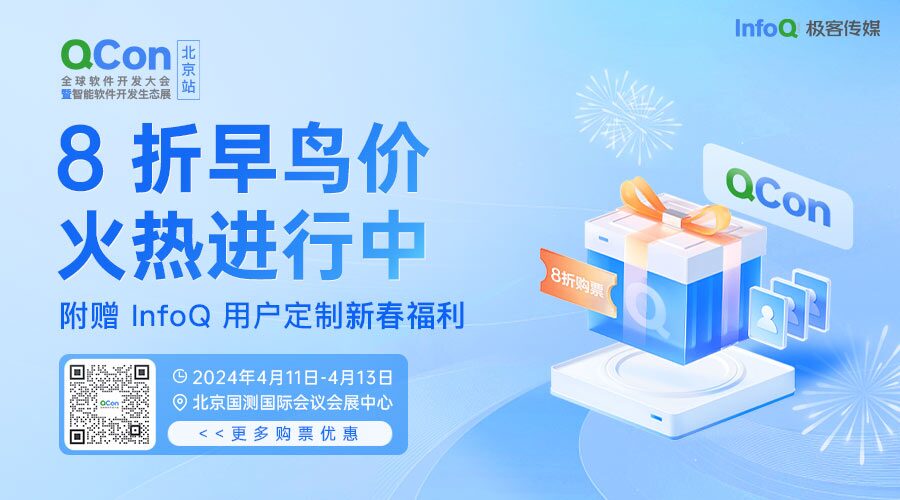
Today marks the 20% early bird ticket purchase phase for the conference, with the last three days remaining. Contact ticket manager 17310043226. Check the “Read Original” for more details about the conference, looking forward to communicating with developers on-site.